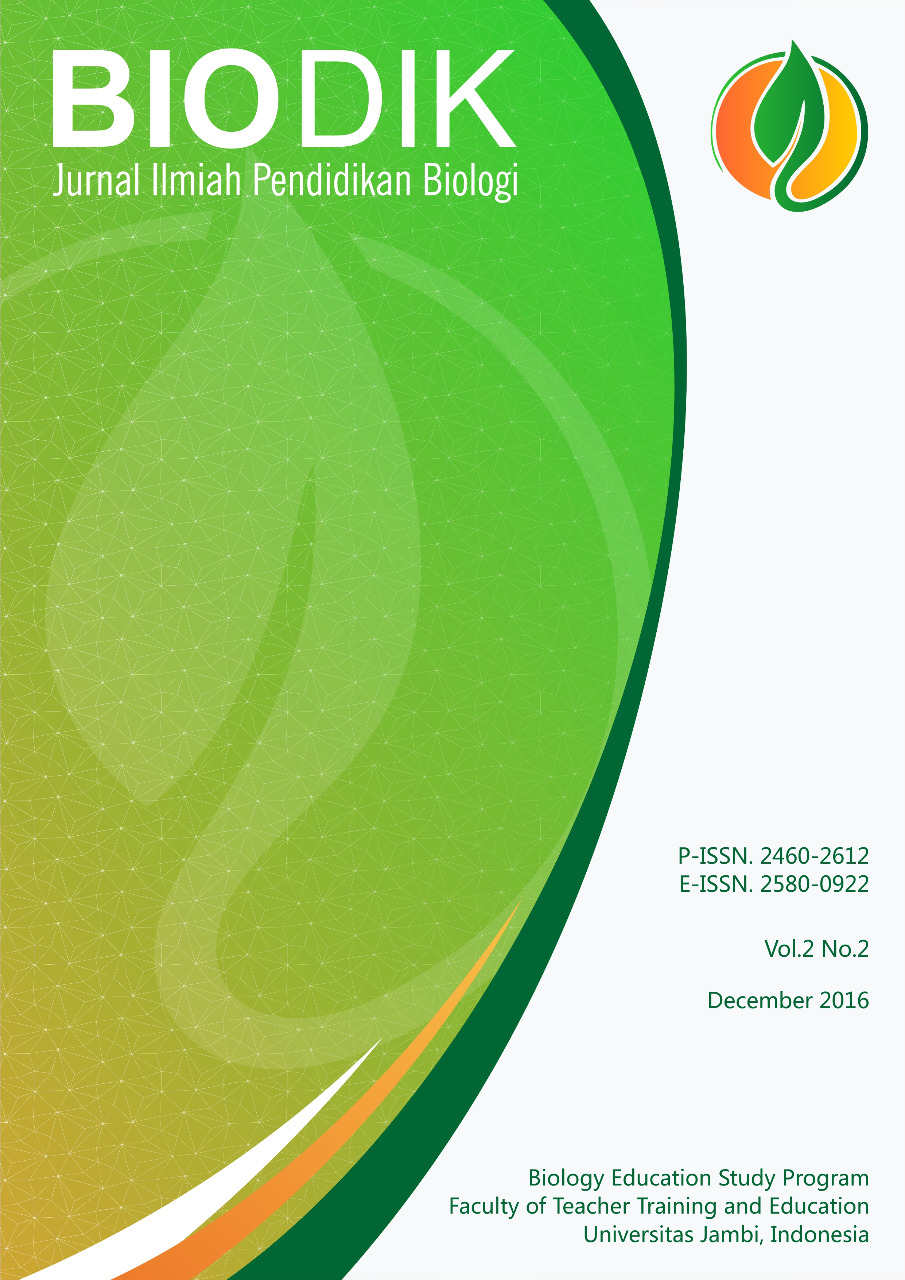ANALISIS HUBUNGAN PENGETAHUAN SISWA TENTANG PEMANFAATAN LIMBAH DENGAN PERILAKU PENGELOLAAN LIMBAH KELAPA SAWIT DI SMA DAN SMK KELAS XI KECAMATAN SUNGAI BAHAR
DOI:
https://doi.org/10.22437/bio.v2iNo%202.4906Abstract
ABSTRAK Penelitian ini bertujuan untuk mengetahui hubungan antara pengetahuan siswa tentang pemanfaatan limbah dengan perilaku siswa dalam pengelolaan limbah kelapa sawit di SMA dan SMK Kelas XI Kecamatan Sungai Bahar.Pengumpulan data dilakukan melalui observasi, tes, dan angket pada siswa.Serta wawancara yang dilakukan pada guru Biologi/IPA.Data dianalisis secara deskriptif. Hasil analisis korelasi antara pengetahuan siswa tentang pemanfaatan limbah dengan perilaku siswa dalam pengolahan limbah kelapa sawit menunjukan nilai r sebesar 0,14 yakni memiliki hubungan positif namun dalam kriteria sangat rendah. Selanjutnya dilakukan analisis regresi didapatkan nilai determinasi sebesar 0,20. Hal ini bermakna bahwa 20 % perilaku siswa dalam pengelolaan limbah kelapa sawit dipengaruhi oleh pengetahuan siswa tentang pemanfaatan limbah, sisanya disebabkan oleh faktor lain.
Downloads
Downloads
Published
Versions
- 2018-04-23 (1)
- 2018-04-23 (1)
How to Cite
Issue
Section
License
Copyright Notice
Authors who publish with Biodik : Jurnal Ilmiah Pendidikan Biologi agree to the following terms:
- For all articles published in Biodik : Jurnal Ilmiah Pendidikan Biologi, copyright is retained by the authors and grant the journal right of first publication with the work simultaneously licensed under a Creative Commons Attribution-ShareAlike 4.0 International Licensethat allows others to share the work with an acknowledgment of the work's authorship and initial publication in this journal.
- Authors are able to enter into separate, additional contractual arrangements for the non-exclusive distribution of the journal's published version of the work (e.g., post it to an institutional repository or publish it in a book), with an acknowledgment of its initial publication in this journal.
- Authors are permitted and encouraged to post their work online (e.g., in institutional repositories or on their website) prior to and during the submission process, as it can lead to productive exchanges, as well as earlier and greater citation of published work (See The Effect of Open Access).

















